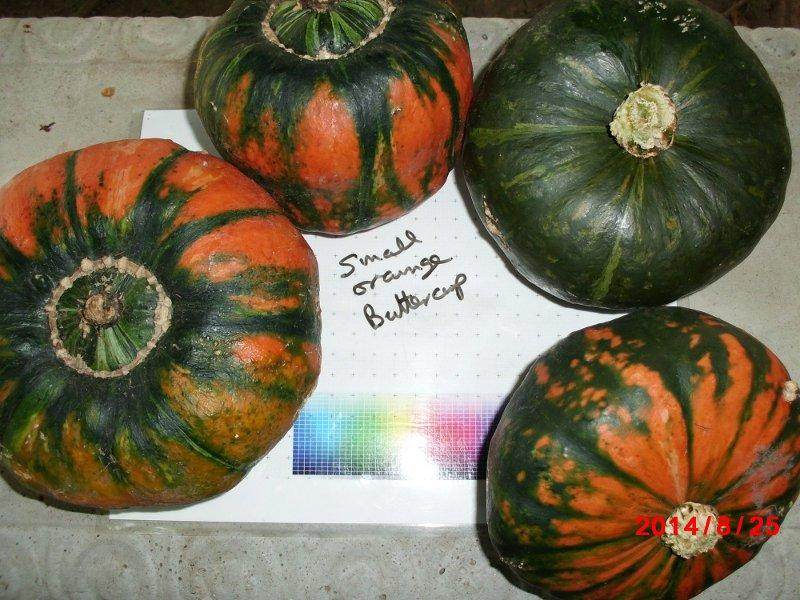
 1
1




 2
2











 2
2





Living in Anjou , France,
For the many not for the few
http://www.permies.com/t/80/31583/projects/Permie-Pennies-France#330873












 2
2











 1
1




Don't let perfect be the enemy of good.




R Ranson wrote:It could be the kind of squash. I'm growing mostly Maxima squash. This is my second year of creating a landrace squash and it's been amazing. To start the mix, I chose my favourite which is buttercup. Added in an orange cinderella squash because it grows like stink with very little water, and Carol Deppe's sweet meat organ homestead squash because it has such a large flesh to seed ratio. This year, I have a whole range of squash types and am heavily selecting for drought tolerance. Like I said, two of my squash patches have had zero water since May - no rain, no irrigation, nothing! They also all germinated from being direct sewn before our last frost date and survived a few light frosts.
As for nitrogen. I never really thought about it. I guess the stuff next to the chickens would be pretty N rich.
I don't know the chemistry, but maybe the compost/manure is more balanced than artificial Nitrogen would be?
K Putnam wrote:I've been growing squash in a really nutrient-poor part of the garden, so I feel like they need some help beyond what the soil offers. When I plant seeds, I dig down a few inches and blend in a handful of complete organic fertilizer a la Steve Solomon, top back with dirt, then plant. By the time the seedlings are up and running, the fertilizer has started to break down and they just take off. I haven't had too much nitrogen be an issue, probably because the soil I am working with is currently very nitrogen-poor to start.




Don't let perfect be the enemy of good.
 2
2




"The rule of no realm is mine. But all worthy things that are in peril as the world now stands, these are my care. And for my part, I shall not wholly fail in my task if anything that passes through this night can still grow fairer or bear fruit and flower again in days to come. For I too am a steward. Did you not know?" Gandolf

 2
2












Joseph Lofthouse wrote:
I don't use fertilizer on my farm, and therefore not on the squash either. I'm noticing this year that my squash field is getting a bit low on nutrients. So I'm intending to grow a mixed-species cover crop this winter. I'm intending to introduce some leguminous weeds into that field: I grew a patch of black medic seed this summer so I'll start with that as a suitable weed.
 2
2





 5
5




chip sanft wrote:Thanks, Joseph! Just so I understand clearly: Are green manures the only way you add nutrients to your soil (i.e., no animal manures etc.)?








Joseph Lofthouse wrote:
chip sanft wrote:Thanks, Joseph! Just so I understand clearly: Are green manures the only way you add nutrients to your soil (i.e., no animal manures etc.)?
I grow a tremendous amount of weeds. The weeds and crop residues get returned to the soil exactly where they grew. Because of concerns about poisons, herbicides, pharmaceuticals, heavy metals, and weed seeds I do not bring any outside organic matter onto my farm: No compost. No manure. No wood.




Joseph Lofthouse wrote:
To really do farming right. I should be living on my farm with a bunch of animals. Oh well, I make choices and live with the consequences, and make do as best as can be.
Idle dreamer

 5
5




 1
1




Idle dreamer

 6
6





 2
2




 1
1




 1
1












Marco Banks wrote:I pee around the base of them.

"People may doubt what you say, but they will believe what you do."








 2
2




Kyle Neath wrote:Just because I'm curious: why is it okay to grow some veggies straight on top of un-finished compost? It was always my understanding that you never wanted veggies touching manure (pathogens), and squash seem like they'd be the most likely to come into contact with those pathogens.
 1
1




Kyle Neath wrote:Just because I'm curious: why is it okay to grow some veggies straight on top of un-finished compost? It was always my understanding that you never wanted veggies touching manure (pathogens), and squash seem like they'd be the most likely to come into contact with those pathogens. When I think of "un-finished" I mean in the sense that it hasn't had the chance to get hot as it does in the middle of the pile, which is why we turn or cover our manure compost piles. Other uses of raw manure I've heard of get around this through time (tilling into a field before veggies grow) or distance (burying it under dirt in a hotbed).
"People may doubt what you say, but they will believe what you do."





|
Destiny's powerful hand has made the bed of my future. And this tiny ad:
Learn Permaculture through a little hard work
https://wheaton-labs.com/bootcamp
|








